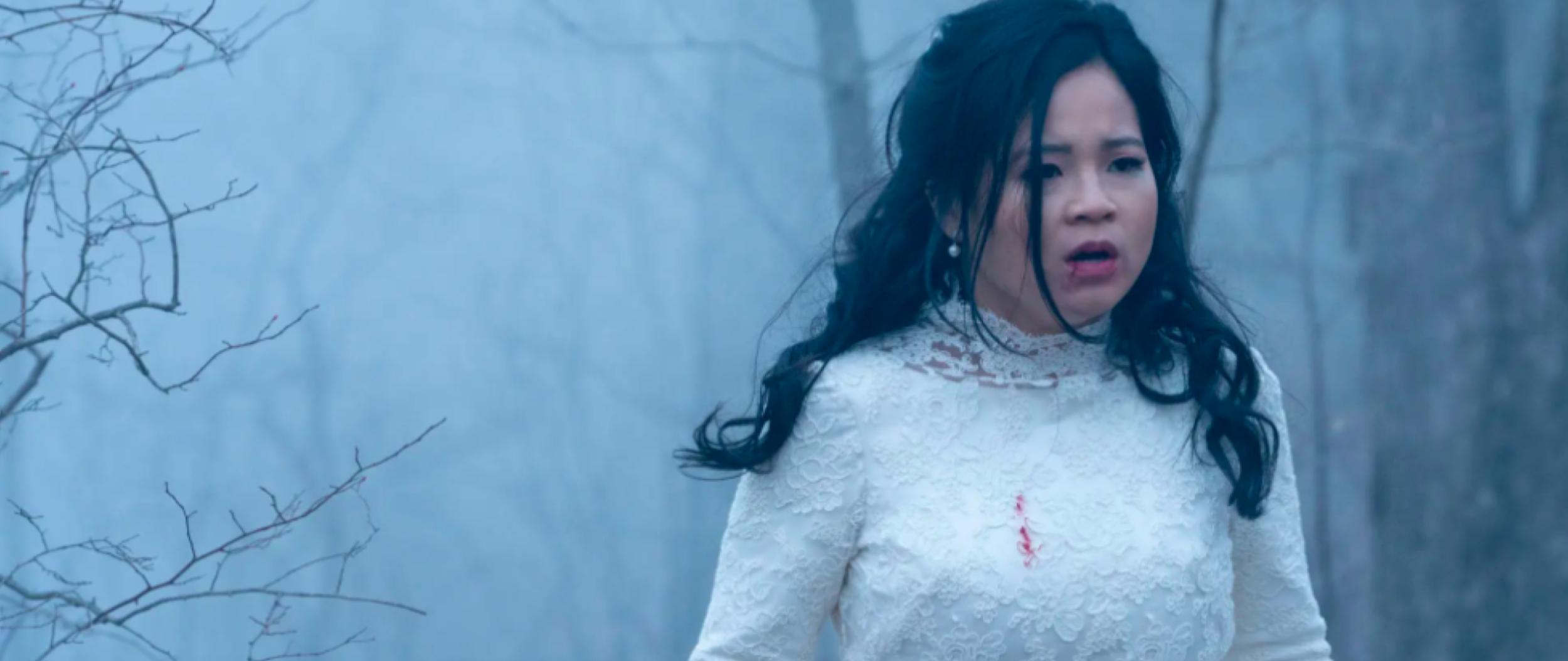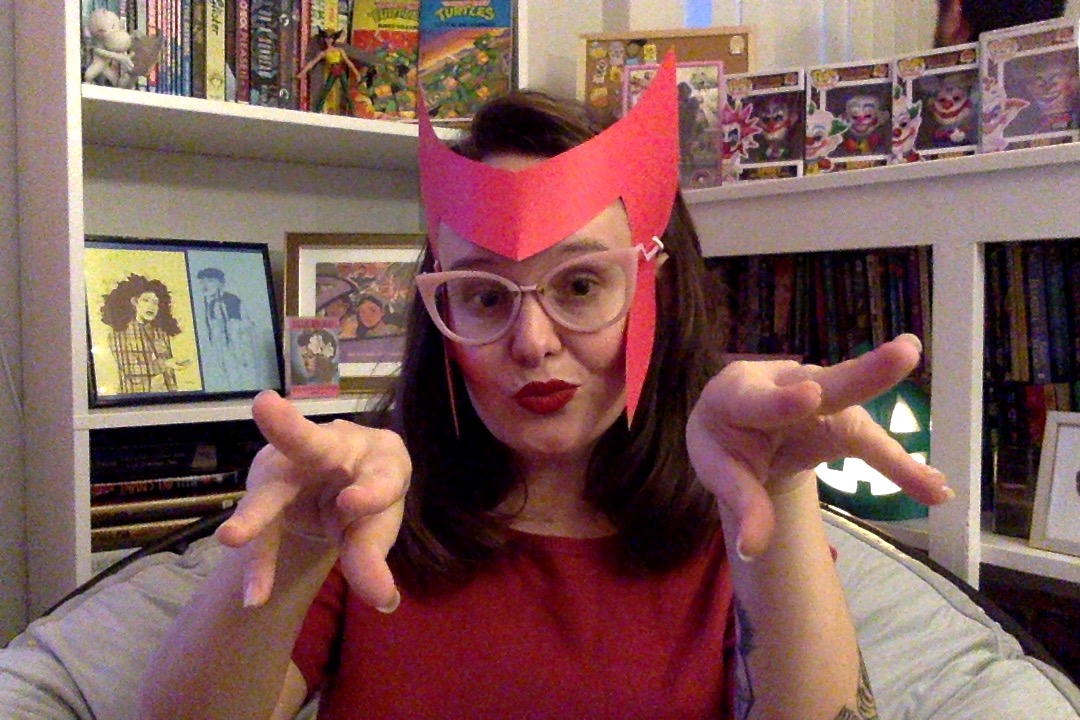What to Watch Verdict
An ambitious, atmospheric, and very mixed bag with some true standouts.
Pros
- +
🧜 An eclectic lineup of directors.
- +
🧜 Nicole Beharie gives another stunning performance.
- +
🧜 Stacked with complex women.
- +
🧜 Kelly Marie Tran kills it in a season best episode.
- +
🧜 A sincere approach to genre.
- +
🧜 Trieu Tran and some v good mermaids.
- +
🧜 The series centers working class stories.
Cons
- -
🧜 Some episodes drag.
- -
🧜 Occasionally leans into ableist tropes.
- -
🧜 Features a poorly handled episode about mental health.
- -
🧜 Might be a little too drab for some horror hounds.
Horror anthologies are often dragged down by their worst entries. Though Hulu's Monsterland does feature a couple of duds, it's generally buoyed by the brilliance of its best episodes. Created for TV by playwright Mary Laws, who writes most episodes, and inspired by Nathan Ballingrud's short story collection North American Lake Monsters, Monsterland focuses on character-driven narratives that often just touch on the supernatural. That can sometimes be to its detriment as where the series really shines is in the moments it embraces the horrors - both surreal and utterly domestic - that are found in each of the episodes' often rural locales.
With that said, the other side of what makes Monsterland work is the constant dissection of just who the monsters really are. While we get all kinds of mythical creatures like mermaids, shape-shifters, shadow creatures, and more, what each episode actually wants you to come away with is the horror in the mundanity of everyday life and how it drives us to do awful things. The best of the series does a great job of balancing both with "New Orleans, LA" and "Iron River, MI" standing out as examples of how powerful Monsterland can be when it gets it right.
The former focuses on a stunning turn from Nicole Beharie as a mother whose young son is convinced he saw a monster during a visit to Mardi Gras. Mixing grounded analogy with the supernatural packs a punch here as Beharie flits between loving mother and something far more horrifying. Exploring wealth, class, complicity, and abuse, it's a hard but satisfying watch that plays into the strengths of the series, plus features some incredible, jarring sound design. The latter is easily the best part of Monsterland, with a script from playwright Emily Kaczmarek and directed by Desiree Akhavan (Appropriate Behavior, The Miseducation of Cameron Post). Iron River's a haunting fairytale of neglect, jealousy, friendship, and freedom anchored by the wonderful Kelly Marie Tran who plays her role with a juxtaposition of feral survival and poise.
Both of these episodes highlight the power of Mary Laws' unconventional approach and beautiful experimental cinematography from Anka Malatynska shines. Directors are given space to create visually unique stories. Complex and often unlikeable women are centered in genre tales about their own struggles and lived experiences. There's a dedication to stories that feel real and important.
Another great entry is "Palacios, TX," which follows the grand horror tradition of telling a vital human tale through the lens of the unusual. Immigration, assimilation, and racism are all touched on as Trieu Tran gives a tour de force performance as an outspoken fisherman in Texas trying to make ends meet after being injured by the corporate negligence of billionaires.
Ironically, the other side of the series' freeform approach which delivers so much promise also means that other episodes lack the vision and impact of the best that Monsterland has to offer. Series opener "Port Fourchon, LA" falls into the more middling category with a great lead turn by Kaitlin Denver--who is one of the few threads that ties the disparate stories together--and an impressive dedication to the absolute drudgery that can be daily working class life. How much you take from the story will likely depend on your own experiences, but ultimately it exists in what I saw as one of Monsterland's weaker areas: when it leans into a near-fetishistic enjoyment of despair. It's a problem that seeps through to other episodes too like "Eugene, OR," which also falls into the hamfisted analogy camp and almost put me off before I made it to the dark wonder of the aforementioned Craig William Macneill-directed entry, "New Orleans, LA".
Despite an eclectic lineup of directors and enough diversion in aesthetic to keep things interesting, Monsterland does a solid job of feeling like a tonally consistent series. The question is whether or not you like that tone. It's a dark and dreary world that our heroes and villains inhabit, as visually grey as the moral landscape that they traverse. There's little hope to be found here, although there are glimmers of it that can be traced through the darkness. Plus, there's occasionally catharsis for victims and survivors, but it's not as simple as the good succeeding and the bad being punished. Much of Monsterland plays with the very notion of those ideas as well as subverting our expectations of who gets centered in stories of survival and distress.
The latest updates, reviews and unmissable series to watch and more!
While the tone is consistent, as mentioned, the quality of stories isn't. The joy of an anthology means you can skip the entries that don't speak to you, but with Monsterland reaching such heights it does make the low points feel lower. In its weakest episodes the series struggles with analogies that are muddled, leaving the audience at a loss. Or, at the other end of the spectrum, some of the episodes that miss are far too on the nose, feeling heavy handed and simplistic. Whereas the cursory dissection of online radicalization in "Eugene, OR" confuses and ends up saying next to nothing, the queer depression pondering of "Plainfield, IL" ends up as irresponsible. Horror often has problems portraying mental illness or disability as monstrous and, sadly for all its achievements, Monsterland does not subvert that particular trope, instead leaning in during a couple of episodes with magical cures and mentally ill people portrayed as terrifying burdens.
Interestingly, even at its "worst," Monsterland's episodes are well acted, interestingly written, and polished, so this--as with any review--is all incredibly subjective. There was only one entry out of eight that truly baffled me, not with anything deeply offensive or problematic, just a story I really couldn't comprehend. On the surface it seemed to be about loss, grief, and recovery, but had a setup so convoluted and an ending so abrupt and aggressively surreal that it just didn't satisfy me in any way. However, the power of Monsterland is that each of the stories will speak to audiences differently depending on their own personal tragedies and journeys, so perhaps that episode will find someone and move them deeply, just like "Iron River, MI" affected me.
When it comes to the creature work and more obviously horror-drenched moments, Monsterland shines. Without spoiling, most episodes have some great creature creations, but "Iron River, MI" and the haunting Trieu Tran star vehicle "Palacios, TX" stand out. The question of whether Monsterland is truly a horror anthology will likely be a big one after the show hits screens. It definitely doesn't fit into the dreaded "elevated" category that people like to try and squeeze prestige horror into, feeling more like drama that occasionally touches on the magical and monstrous but is more concerned with the dark side of humanity than anything else.
Rosie Knight is an Eisner-winning journalist and author who's been writing professionally since 2005. Her career has taken her around the world and, although she hails from London, she currently resides in Los Angeles where she writes full time. She began as a professional poet but transitioned into journalism, starting at the Eisner-winning WWAC in 2016. Since then she has written over 1500 articles for digital media sites including What to Watch, Nerdist, IGN, The Hollywood Reporter, Esquire, Den of Geek, DC Comics, /Film, BuzzFeed, and Refinery29. She also writes comics including The Haunted High Tops and Cougar and Cub. When she's not writing she spends far too much time watching horror movies and Hallmark films.


